Sustainability/Climate Change

Can we feed a growing world population without using yield-boosting technologies?
The production of food has environmental impacts, there is no way around this .... Nature is ruthless and weeds will ...

Is climate change ‘robbing’ our food of nutrients?
Is it possible to starve yourself of nutrients while simultaneously gaining weight? .... According to a growing body of research, ...
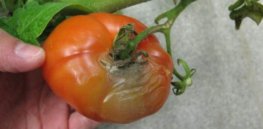
Using biotech to turn plants into ‘antifungal factories’ could protect against disease
Researchers [at the Centre for Research in Agricultural Genomics (CRAG) in Spain] have developed a biotechnological tool to produce .... antifungal ...

GMO bacteria could help resolve Africa’s plastic pollution ‘menace’
African scientists are calling for investments in the application of biotechnology to deal with the world’s plastic pollution problem. They ...

Lab-grown meat is coming soon—but will anyone eat it?
As 2018 wraps up, the average American is poised to have eaten 222 pounds of beef over the course of ...
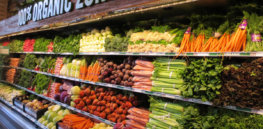
Viewpoint: Intensive agriculture is the only way to sustainably feed the world
[In December], the World Resources Institute (WRI) released a comprehensive study embracing agricultural intensification as the only way to simultaneously close what ...

Podcast: Jon Entine, Kevin Folta, Perry Hackett on how gene editing could dampen the partisan GMO divide
How do you win over people who view crop biotechnology and corporate influence as threats? One answer may be gene ...

Land sparing or land sharing: How do we feed the world while protecting the environment?
It is one of the biggest questions in conservation: Should we be sharing our landscapes with nature by reviving small ...
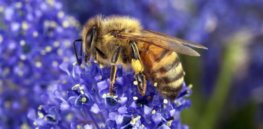
Edible vaccine may protect honey bees from deadly microbial infections
A growing number of honey bees die each year due to pesticides, vanishing habitats, poor nutrition and climate change, with ...
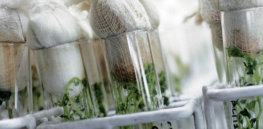
Viewpoint: With reasonable regulation, we can turn wild plants into food with gene editing
The crops we rely on today have been bred over thousands of years to enhance certain characteristics. For example, sweetcorn ...
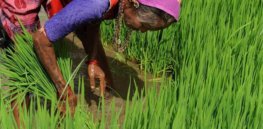
GMO crops may help keep arsenic out of India’s food supply
An Indian scientist in the UK is working on a way to grow crops in arsenic contaminated soil, a study ...

We need to produce 56 percent more calories by 2050—can we do it sustainably?
If the world hopes to make meaningful progress on climate change, it won’t be enough for cars and factories to ...

‘Switching off’ genes could speed efforts to breed disease-resistant plants
Researchers from [the French Agricultural Research Centre CIRAD] recently showed that inactivating a gene, RECQ4, leads to a three-fold increase ...

GMO crops and herbicides: A ‘win-win’ for farmers and the environment, plant scientist Wayne Parrott says
A fertile soil is a microbial wonderland .... a tiny ecosystem too small to see with our eyes. Yet, the ...

Uganda’s young cassava farmers want access to GMO crops
Though Uganda’s Parliament passed a biosafety bill [the week of November 26], it remains unclear whether it will benefit a ...
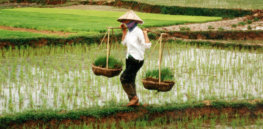
Climate change spurs research to develop heat-tolerant rice, wheat
Wheat with DNA tweaked to beat the heat, and redesigned rice that can flourish in hot, dry conditions. Work is ...
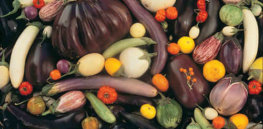
Controlling harmful soil microbes may be key to protecting biodiversity
An international team led by researchers at The University of Manchester have discovered why some plants "live fast and die ...

GMO crops may be necessary to counter impacts of climate change, study shows
New research suggests that the type of yield gains made possible by genetic engineering (GE) will be needed to offset ...
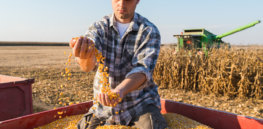
GMO corn doubles crop yields in Paraguay, report shows
The use of transgenic maize doubled the production of the cereal in Paraguay during two decades of variety planting. A ...
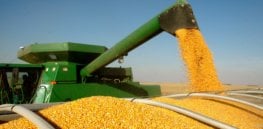
There is a ‘broad scientific consensus’ on GMO crop safety, expert affirms
Despite the long enunciated national policy of safe, responsible use of modern biotechnology, a few local government units in the ...

Meat industry may back its cell-based competitors to gain foothold in health food market
According to Andrew Noyes, the head of communications for Just Inc., meat companies are discussing the possibility of helping cell-based meat ...

Why are strawberries so big? The genetics behind ‘up-sizing’ fruits and vegetables
Once upon a time, there was a land where food was not guaranteed everyday. Children were searching woods to pick ...
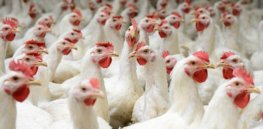
Whole Foods embraces slow-growing chickens: Why that’s not so environmentally sustainable
There is a movement, pushed by Whole Foods, to go back to slower-growing chickens. This is problematic from a sustainability ...
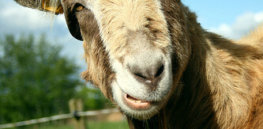
Better livestock breeding could help bring Uganda’s farmers out of poverty
“Kafuuzi!” Grace Bwogi shouted. A black and grey goat turned in the caller’s direction before shifting her gaze and continuing ...
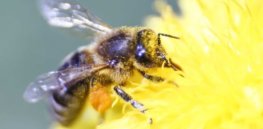
Mapped British honey bee genome could help safeguard hives against infectious disease
Efforts to protect the UK's native honey bees could be helped by research that maps their entire genetic make-up. Experts ...
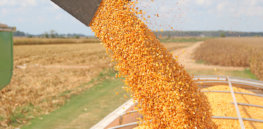
‘Low to non-existent’ safety risks and higher yields support widespread adoption of GMO crops, researchers say
The anticipated world population growth emphasizes a need to produce more food on less land. Cutting-edge technologies, including genetic engineering, can ...

Onto the grill: But are consumers ready to embrace—and eat—lab-grown meat?
It’s been a busy summer for food-based biotech. The U.S. Food and Drug Administration made headlines when it approved the ...

